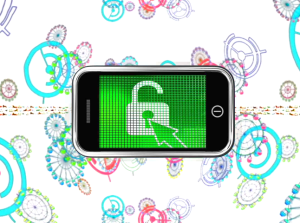Public Wins in Small Battle Over Digital Lock-Breaking
 It’s a safe bet that many Americans have heard the word “copyright” before. But it’s doubtful that the majority of us are well-versed in its technicalities — like Section 1201 of the Digital Millennium Copyright Act (DMCA). This lil’ bit of legislation pertains to digital locks on electronic devices. Smartphones, tablets, and computers are some of the more obvious examples of technology that makes use of digital locks, but they’re in a whole lot of other stuff we use, too. Section 1201 effectively made it unlawful for a person to to things like jailbreak an iPhone or tamper with a personal computer.
It’s a safe bet that many Americans have heard the word “copyright” before. But it’s doubtful that the majority of us are well-versed in its technicalities — like Section 1201 of the Digital Millennium Copyright Act (DMCA). This lil’ bit of legislation pertains to digital locks on electronic devices. Smartphones, tablets, and computers are some of the more obvious examples of technology that makes use of digital locks, but they’re in a whole lot of other stuff we use, too. Section 1201 effectively made it unlawful for a person to to things like jailbreak an iPhone or tamper with a personal computer.
However, there’s a tiny little light at the end of this dark tunnel of digital lock regulations. The war for Americans’ rights to fiddle with their digital locks rages ever on, but public interest groups have scored a rare victory in the most recent courtroom battle against Section 1201. The downside is that the Copyright Office only allows such battles to be fought every 3 years.
Welcome to the Digital Millennium?
One of the big reasons why it’s so rare for Section 1201 to be edited in any sense is the whole David/Goliath aspect of the situation: it’s nonprofit groups vs. pro-profit companies. The people who sell us tablets want to make as much money as they can while doing so. With the protection provided by the DMCA, corporations get to profit off the fact that people can’t legally fix their own stuff on their… own.
An especially negative aspect of the whole situation is the fact that Section 1201 only prohibits the development of jailbreaking technology, not the procurement of such tools via unofficial sources. So, technically, people “can jailbreak their stuff,” but nobody is allowed to produce technology that’s capable of doing it. It’s like the War on Drugs: people who want to make reasonable adjustments to their own devices have to rely on unlawful groups to do it. Just as severe drug laws force stoners to get their pot from sketchy back-alley drug dealers, techies have to get their jailbreaking tools from sources like Darknet.
Enjoy The Victory; Prepare For More
Among other public interest groups joining the legal fight against Section 1201 restrictions is the Electronic Frontier Foundation (EFF), a group which celebrated a few nice victories in this latest courtroom debate. The big dog businesses who felt the impact of these wins included General Motors, John Deere, and a medley of companies from the entertainment industry.
Rewards for EFF and the other public interest groups’ successes this year include an extension of jailbreaking allowances to tablets in addition to smartphones and a distinction between laptop computers and tablets. It’s important to note that this legislative upgrade isn’t all encompassing. There are countless electronic devices used by Americans every day which are still protected against jailbreaking and tampering with digital locks. The 27 petitions which came forward at this particular Copyright Office sanctioned proceeding is expected to get bigger and bigger over the next few years — probably into the 100’s.
Digital Millennium Copyright Act
The Section 1201 part of the DMCA deals with what legal professionals call “anti-circumvention provisions.” While giving exemptions to certain entities, mostly corporate and governmental, the legislation provides copy-protection for digital lock grids that place regular citizens in criminally liable positions even for reasonable or legitimate circumventions of technological protection systems.
Reverse-engineering, therefore, is considered unlawful for most Americans except under very, very specific circumstances. Lawmakers are still trying to wrestle these legal restrictions toward the ultimate goal of justice.
Hire Nashville Business Lawyers
At Turner Law Offices, P.C., our team of attorneys has years of experience working with clients across a wide range of circumstances related to copyright infringement. Whether you’re the victim of such a lawsuit, or wish to press charges on these grounds yourself, we know the most efficient means of pursuing a satisfactory resolution. Call today, or go online to set up your Free Initial Consultation, and meet with a skilled lawyer who is ready and waiting to get you on track toward the justice you deserve.







